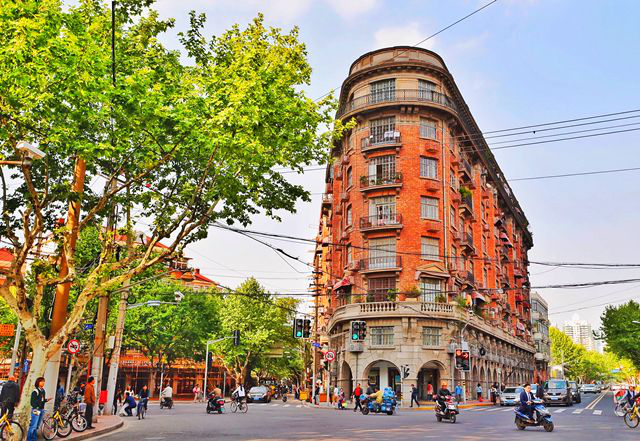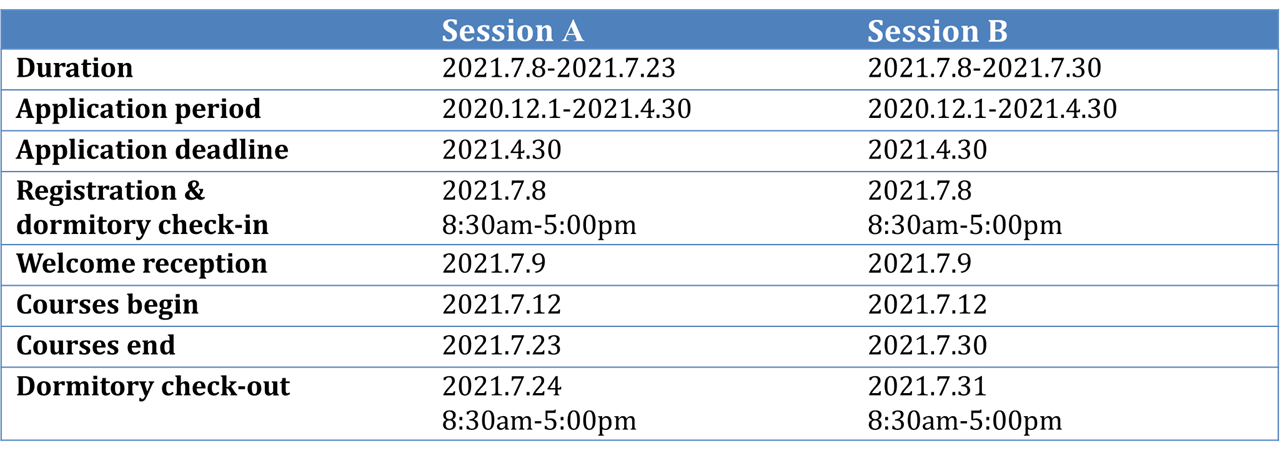2021 Global Summer School
The Story of Li-Long: Conservation and Renovation of Shanghai Regional Culture
The city of Shanghai is like a vibrant living body. Looking down from a height: the criss-cross road is like an artery, dividing the city into several specific areas; small passages formed a community, which are densely covered with the whole city like capillaries. For these small passages and lanes, locals in Jiangnan region calls it “Li-Long”. But one thing makes Li-Long as famous as Beijing “Hu-tong” in the world is because of the rise of a large number of early-modern Li-Long Residential Buildings. Therefore, this course aims to discover the culture and hidden stories of Shanghai Li-long through an architect, landscape architect and urban designer’s perspective, highlighting the conservation and renovation of Shanghai regional culture.
Program Highlights:
Program Duration: 2021 summer for two consecutive weeks
Campus: Xuhui
Program Instructors:
Prof. Xing RUAN
Email: x.ruan@sjtu.edu.cn
Xing RUAN is Founding Dean and Guangqi Chair Professor of Architecture at School of Design, Shanghai Jiao Tong University. He is a member of Shanghai Jiao Tong University Academic Committee. Xing joined UNSW Sydney as Professor of Architecture in 2004. He was Associate Dean International (2015-2018). Xing was Director of Architecture (2014-16), Chair of Architecture Discipline and Director of Master of Architecture from (2005-09). Prior to his appointment to UNSW, he was Head of Department of Architecture at the University of Technology Sydney (2002-04). Xing has published on a cultural history of housing, architecture and anthropology, vernacular architecture, architectural education, Louis Kahn and modern architecture, China’s pre-modern, modern and contemporary architecture, as well as Australian contemporary architecture. Xing teaches architectural design, history and theory. He has been invited to give keynote and public lectures at conferences and universities in China, South-East Asia, India, USA, the UK, Italy, New Zealand, Argentina and Australia. He also serves as a supervisor for PhD and Master’s research degrees.
Prof. Shengquan CHE
Email: chsq@sjtu.edu.cn
Professor Che is a doctoral supervisor and the Vice Dean of the School of Design. His research areas include the education and research of landscape ecological planning and design, landscape evaluation and protection, as well as rural landscape.
Prof. Yun WANG
Email: wangyun03@sjtu.edu.cn
Dr. Wang is an Associate Professor from the School of Design, and the department head of Landscape Architecture. He has a multi-disciplinary background of landscape planning and design and architecture. His research areas are in the culture, history and practice of Chinese gardens. He has supervised more than 200 planning and design projects.
Lecturer Dan CHEN
Email: danchen.gator@sjtu.edu.cn
Dr. Chen obtained her Ph.D. in Landscape Architecture from the University of Florida. She is the program director of Master of Landscape Architecture(International) and in charge of undergraduate courses including preliminary design, landscape planning and design, and planting design. Her major research areas are landscape planning and design, ecological protection and restoration, classical Chinese gardens, and urban green space issues.
Dr. Qian DU
Email:qian.du@sjtu.edu.cn
Researcher at the Department of Architecture, School of Design. Her research focuses on conservation theory, techniques of restoration and the application of GIS in built heritage conservation. The publication includes several papers in professional journal and articles in Cultural Relics Management Review, Heritage Sites in Contemporary China Cultural Policies and Management Practices, etc.
Prof. George FRANTZ
Email: frantz@cornell.edu
George Frantz is an associate professor in the Department of City and Regional Planning at Cornell University, where he teaches classes in land use planning and community development, and environmental impact review. His primary areas of expertise are in urban design and master planning, with particular emphasis on green infrastructure and the protection of agriculture and environmentally sensitive lands and water resources. In addition to teaching, he has over 30 years of planning and design consulting for municipal governments in New York state. Frantz received his B.S. in landscape architecture and his M.R.P. from Cornell University in 1980 and 1991 respectively.
Contact:
Program Director : Prof. Shengquan CHE (chsq@sjtu.edu.cn)
Program Coordinator: Ms Siyi CHEN (siyichen@sjtu.edu.cn)

Student Eligibilities
1. Students from other regions and countries (Including Hong Kong, Taiwan, and Macao China) must be enrolled as an undergraduate or graduate student before applying for this program.
2. Students from non-English speaking countries should provide an English language proficiency certification. Either an IELTS (no less than 6.0), TOEFL (no less than 79 points), or TOEIC (no less than 800 points). If you are studying in a Fully-English-taught program, relevant certifications should be provided.
3. Other prerequisites may be required by each course respectively.
Application Procedure

1. Please apply via the following website: http://apply.sjtu.edu.cn
2. The following items must be uploaded to the online application:
3. Applicants can only attend one course across the program.
4. In regards to free placements for applicants from university-level exchange partners, please contact the International Office of your home university for more detailed information.
Fees &Refund policy
Fees
Session A | Session B | |
Application fee | RMB 400 (USD 60) | RMB 400 (USD 60) |
Tuition fee | RMB 5000 (USD 760) | RMB 7500 (USD 930) |
Total | RMB 5400 (USD 820) | RMB 7900 (USD 900) |
Deadline | 2021.5.29 | 2021.5.29 |
The culture trip fee is not included in the tuition fee.
Refund Policy
**Please aware that the application fee is non-refundable.
Withdrawal is defined as the dropping of an entire academic program. All students who drop their academic program before May 29,2021 will not be charged.
Cancellation date | Remarks |
By May 29, 2021 | Full refund |
By July 9, 2021 | 50% refund |
After July 9, 2021 | No refund |
*All cancellation requests must be sent to isc.mobility@sjtu.edu.cn.
Received Proof of Documents
You will receive an official transcript and a certificate from SJTU after successfully complete the program:
1. Official transcripts will be sent out in September to the mailing address you indicated in your application.
2. Students who wish to transfer credits need to obtain pre-approval from the relevant authorities at your home universities.
3. An official certificate will be issued to the student who completes the course by the University.
Important Dates

For more program information, please visit: https://summerprogram.sjtu.edu.cn/
Attachment(s):